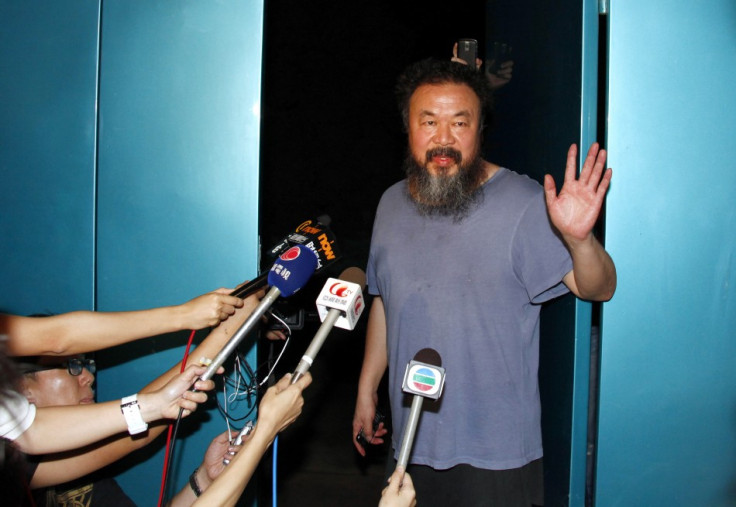Chinese dissident Ai Wei Wei is released but remains silent

Ai Wei Wei is back at home after more than two months in detention. The Chinese activist and artist has been released on bail, after pleading guilty to charges of tax evasion, according to state news agencies.
The 54-year-old dismissed claims of illness; however he seemed extremely keen not to talk about his ordeal and the conditions in which he was detained for more than two months.
"I am already home, released on bail, I can't talk to media but I am well, thanks for all the media attention," he said keeping the details of his detention to himself.
Mr Ai, who is an outspoken critic of the government, was detained as he boarded a Beijing flight bound for Hong Kong.
Ai Weiwei gained international recognition in the early 1980s for his monolithic brick sculptures and remains one of China's most known Artist but became even more famous for helping design the Bird's Nest stadium that became the centre-piece for Beijing's 2008 Olympics.
While Beijing arrested him and alleged the artist had evaded taxes and destroyed evidence, his supporters said the charges were motivated by his activism and his arrest prompted a global campaign for his release.
Rights groups have accused China of breaking its own laws by holding Mr Ai in secret without access to a lawyer.
Governments and activists have given a guarded welcome to the release of Chinese artist Ai Weiwei after more than two months in detention, and answered rather cautiously to the artist's release, with many insisting he now must be granted his full liberty and emphasised the deplorable conditions of his detention.
British artist Anish Kapoor said he was thrilled but urged supporters to "carry on making a noise" b before adding: "We must be strident: I call on every artist not to show in China"
The US state department spokesman Mark C Toner welcomed the release, saying Mr Ai had been in prison "only for exercising his internationally recognised human rights".
"But there's obviously more individuals who are being held, so we want to see - and urge - a release of all these people."
EU foreign policy chief Baroness Ashton said Mr Ai's case had been "the subject of widespread concern" and featured in recent EU-Chinese discussions on human rights in Beijing.
She said she welcomed the news "while regretting the circumstances of his detention".
Also, in a statement, German Chancellor Angela Merkel said his release "can only be a first step" and that China must now fully explain to Mr Ai the accusations against him.
Meanwhile rights group Amnesty International said Mr Ai's long detention without charge had violated China's own legal process.
"It is vital that the international outcry over Ai Weiwei be extended to those activists still languishing in secret detention or charged with inciting subversion," said Amnesty's Catherine Baber.
Amnesty has now released an official statement on its website, calling for other activists to be released:
"While Ai Weiwei's release on bail is an important step, the reality is his long detention without charge violated China's own legal process.
"Ai Weiwei must now be granted his full liberty, and not be held under illegal house arrest as has been the pattern with so many others recently released from arbitrary detention.
"It is vital that the international outcry over Ai Weiwei be extended to those activists still languishing in secret detention or charged with inciting subversion.
"His release can be seen as a tokenistic move by the government to deflect mounting criticism."
His four associates Wen Tao, Hu Mingfen, Liu Zhenggang, Zhang Jinsong still secretly detained should also be immediately released. "
His release coincides with an imminent visit by Chinese premier Wen Jiabao to London and Germany - both countries with strong connections to the artist.
© Copyright IBTimes 2025. All rights reserved.





















